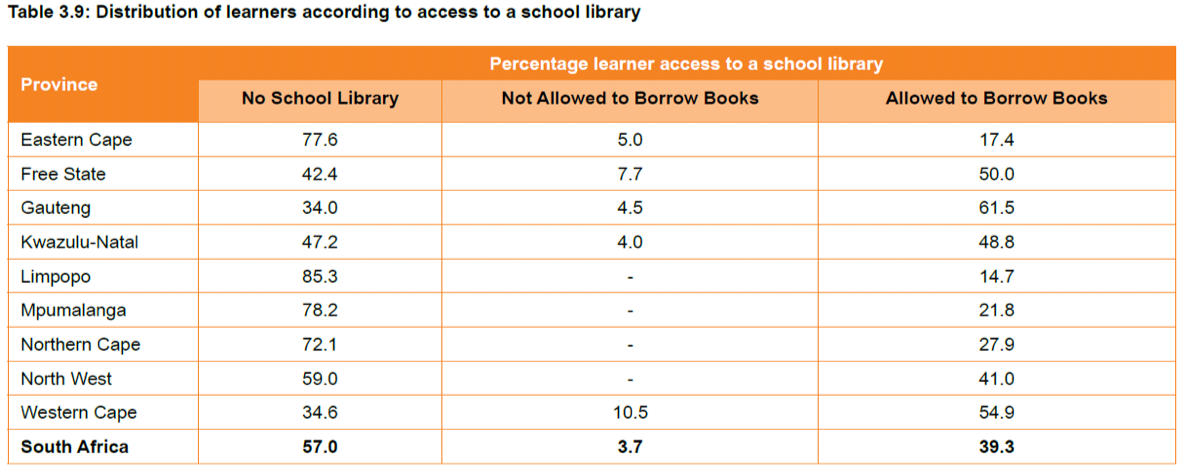In 2018, the national matric pass rate was 78.2%, up from the 2017 pass rate of 75.1%. Of all nine provinces Gauteng had the highest pass rate of 87.9%.
If Gauteng was South Africa we would have a national matric pass rate of 87.9% but it isn’t, it’s just another province.
The Southern and Eastern Africa Consortium for Monitoring Educational Quality (SACMEQ) IV, a survey which was conducted in August 2013 in a representative sample of 298 schools and 7,117 learners across all nine provinces of South Africa shed some light into some interesting aspects in the education systems within the provinces, particularly the distribution of learner’s access to a school library.
The survey report notes the following:
“Historically, the majority of South African schools, which are mainly in the vast rural provinces, have never been provided with facilities such as libraries.”
The percentage of learners who were in schools that had a library and where learners were either allowed or not allowed to borrow books out of the libraries is shown in the table below.

The reason South Africa’s basic education system may never see the light is that when one MEC aims for a 90% matric pass rate in their province, the other one has to think about how they can close the 85.3% gap of schools without libraries.
MECs are now competing instead of picking up each other, well at least as far we have seen, the Gauteng MEC is the one competing. He previously said: “Our children are no longer competing with children from other provinces and I am sorry if this sounds arrogant but they are competing with the world.”
Of course, it’s not Lesufi’s fault that other provinces are under-performing, it’s an argument subject to quite a lot of things. However, it is imperative to note that the national results depend on provincial results. When a child in Limpopo or Eastern Cape can’t get to school or can’t get extra study materials because they don’t have access to a library, their results are put at risk. When their results are at risk, it puts the results of her class at risk, then the school, the district, the province and finally putting the national results at risk.
What we need is a system that preaches and practises one mandate, a system that monitors those who are struggling and use players who are doing well to pick them up.
The basic education system may never see the light at the other end of the tunnel unless they learn to work together instead of competing as if they are learners in a classroom and Gauteng being the brightest learner. And if it’s a classroom, its teacher, Minister Angie Motshekga should fix it. DM















 Become an Insider
Become an Insider